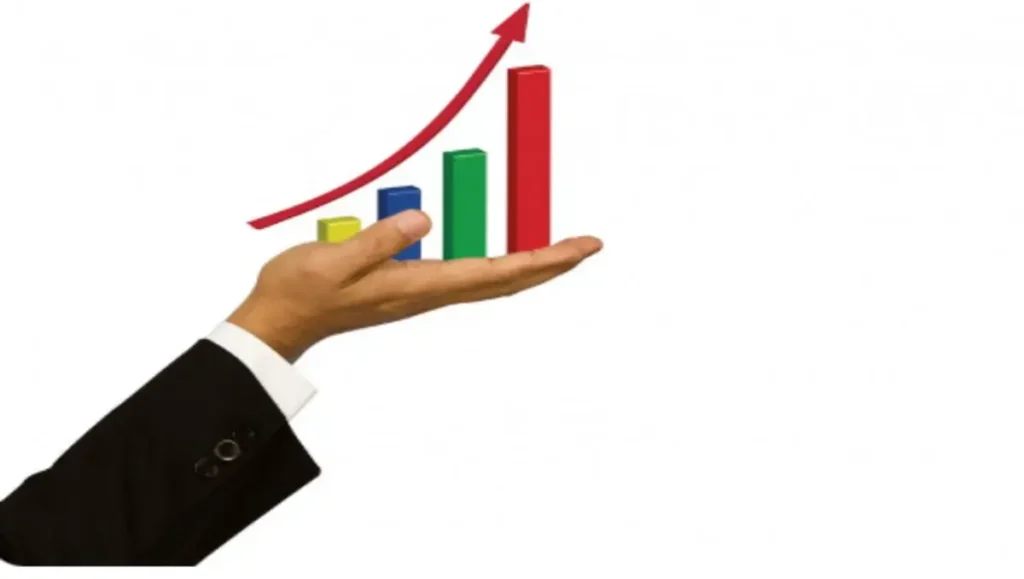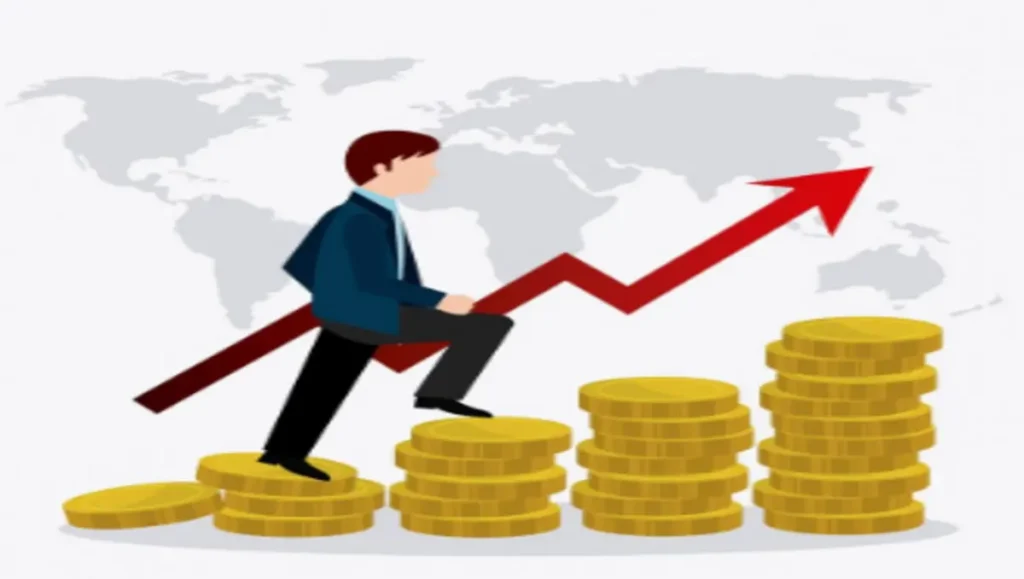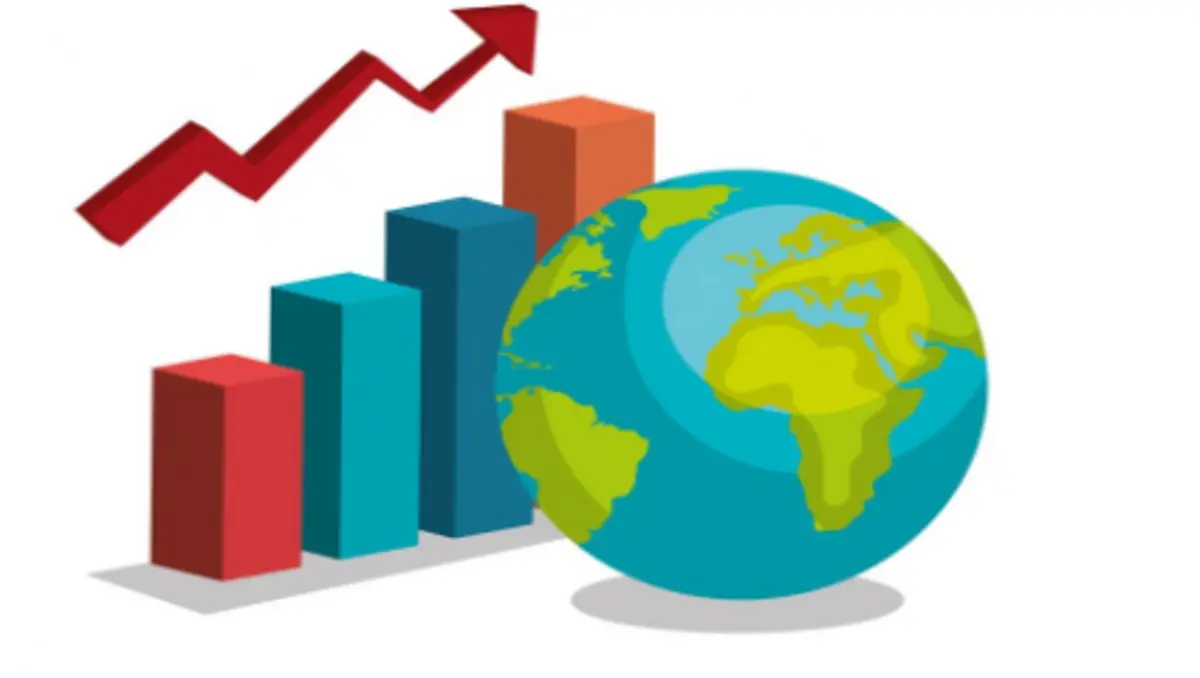Economic growth is a term we hear often, but understanding what it truly means and how it impacts us as individuals is key to appreciating its significance. In simple terms, economic growth refers to the increase in the production of goods and services in an economy over time. It’s typically measured by the growth of the Gross Domestic Product (GDP), which tracks the total value of all goods and services produced within a country. However, economic growth is not just about numbers—it has a profound effect on the lives of individuals and communities. This blog will explore economic growth from a human-centered perspective, showing how it influences not only markets but also our daily lives, opportunities, and well-being.
1. What is Economic Growth?
Economic growth occurs when the overall output of an economy increases over a period of time. This growth can stem from several factors, including technological advancements, increases in labor, improvements in education, or the more efficient use of resources. The common indicator of economic-growth is an increase in a country’s GDP, but it is essential to note that growth can manifest in various forms, from rising wages and employment opportunities to the development of infrastructure and social services.
2. The Simple Concept of Economic-Growth
When we talk about economic-growth, it’s easy to get caught up in statistics like GDP figures and financial markets. But these numbers represent real changes that affect the lives of people—the ones who contribute to and benefit from economic progress. From a human perspective, economic-growth isn’t just about financial wealth; it’s about how that wealth trickles down into the hands of ordinary people and improves their quality of life.
1: Jobs and Opportunities
One of the most direct effects of economic-growth is the creation of job opportunities. As industries grow and new technologies emerge, businesses need workers to meet the increasing demand for goods and services. More job opportunities mean that more people can find stable employment and secure a better future for themselves and their families. This, in turn, reduces poverty and improves living standards.
For instance, the rapid growth of technology companies in the past few decades has opened up new avenues for employment in fields such as software development, cybersecurity, digital marketing, and artificial intelligence. These fields were almost non-existent a few decades ago, yet they are now among the highest-paying sectors.
2: Improved Living Standards
Economic-growth plays a significant role in improving living standards. As economies grow, businesses and governments can invest more in healthcare, education, and public infrastructure. People living in prosperous economies tend to have access to better healthcare services, better educational institutions, and improved public services. This increases life expectancy, reduces infant mortality, and ensures that people live in cleaner, safer environments.
A well-developed economy also leads to better housing, transportation systems, and social services, which are all vital to improving the quality of life for individuals. As people’s incomes rise, they can afford a better standard of living and achieve personal goals such as owning a home, sending their children to quality schools, and saving for the future.
3: Reducing Poverty
Perhaps one of the most significant human benefits of economic-growth is poverty reduction. Economic-growth leads to higher income levels, which, in turn, help lift people out of poverty. As businesses grow and new industries emerge, the demand for labor increases, which raises wages and creates more opportunities for people in lower-income brackets to improve their financial situation.
For example, in countries like China and India, economic-growth over the past few decades has lifted millions of people out of poverty. By focusing on industrialization and infrastructure development, these countries have been able to provide better job opportunities, improve living standards, and reduce the poverty rate dramatically.

3. The Social Impact of Economic-Growth
Economic-growth isn’t just about individuals; it also has a broader social impact. As economies grow, they create more opportunities for social development and cohesion. Increased wealth allows governments to invest in public services like education, healthcare, and transportation, improving the quality of life for citizens. In societies with growing economies, social mobility becomes more accessible, enabling people from different backgrounds to achieve success.
1: Education and Skill Development
Economic-growth fosters the development of human capital through better education and skill-building opportunities. As industries grow, the demand for skilled labor increases. This drives the development of educational institutions that offer training and higher education programs tailored to the needs of a modern economy.
Education is one of the most powerful tools for upward mobility. With the right education and training, individuals can access higher-paying jobs and achieve financial independence. As economies grow, they tend to invest more in education, making it more accessible to people of all income levels.
2: Health and Well-Being
A growing economy allows for improved healthcare systems and access to medical treatments. As nations experience economic-growth, they are often able to expand and improve healthcare services, making it easier for people to access quality care. This leads to longer life expectancy, improved health outcomes, and better quality of life.
In developed economies, the impact of growth on healthcare can be seen through innovations in medical research, the expansion of health insurance coverage, and the improvement of hospitals and clinics. Economic-growth ensures that a broader segment of society benefits from these advancements, helping to reduce health inequalities and improve overall well-being.
3: Equality and Equity
While economic-growth can contribute to social equity, it can also highlight inequalities. Without the right policies, growth can exacerbate income disparities and lead to the concentration of wealth in the hands of a few. It’s essential for governments and businesses to focus on inclusive growth, where the benefits of economic progress are shared equitably across society.
Inclusive economic-growth ensures that all individuals, regardless of gender, race, or background, have access to the benefits of growth. This requires investment in social safety nets, equal access to education and healthcare, and policies that address discrimination and inequality.
4. The Environmental Consideration of Economic-Growth
Although economic-growth brings many benefits, it can also have a negative impact on the environment. Historically, economic-growth has often been associated with increased resource consumption, pollution, and environmental degradation. However, as awareness of climate change and environmental issues grows, more emphasis is being placed on sustainable economic-growth—growth that meets the needs of the present without compromising the ability of future generations to meet their own needs.
Sustainable economic-growth focuses on the use of clean energy, the reduction of waste, and the efficient use of natural resources. Many countries are now investing in green technologies and renewable energy sources, which not only help the environment but also create new industries and job opportunities. This shift toward sustainability ensures that economic-growth doesn’t come at the expense of the planet, creating a better world for future generations.
5. The Global Context of Economic-Growth
While we often think about economic-growth in the context of individual nations, it’s important to remember that we live in an interconnected global economy. Economic-growth in one part of the world can have ripple effects across the globe. For example, the economic-growth of China has significantly impacted global trade, as the country has become a major player in manufacturing and exports.
Global economic-growth provides new markets for businesses, facilitates international trade, and fosters collaboration between nations. However, it also requires international cooperation to address global challenges such as climate change, poverty, and inequality. As economies grow, it’s important to ensure that the benefits are distributed fairly, and that the global economy remains stable and sustainable.

6. The Future of Economic-Growth: A Human-Centered Approach
Looking forward, the concept of economic-growth must evolve to consider not only financial wealth but also human well-being. This means focusing on policies and initiatives that prioritize quality of life, environmental sustainability, and social equity. The future of economic-growth lies in creating a balanced approach that ensures all people—no matter where they live or what they do—can share in the benefits of a growing economy.
As technology continues to advance, there are new opportunities for growth in areas like artificial intelligence, renewable energy, and biotechnology. These sectors not only promise economic expansion but also provide solutions to some of the world’s most pressing issues, such as climate change and public health challenges.
Economic-growth, when viewed from a human-centered perspective, is about improving lives, fostering equality, and building a sustainable future. By focusing on people’s needs and well-being, we can ensure that growth leads to a brighter, more inclusive future for everyone.
Conclusion
Economic-growth is a vital aspect of modern societies, but its true value lies not just in the numbers, but in the human lives it touches. From creating job opportunities to improving living standards, economic-growth is a force that shapes the present and future of individuals, communities, and nations. To ensure that growth benefits everyone, it’s essential to adopt a human-centered approach that prioritizes people’s well-being, social equity, and environmental sustainability.
read more
https://financekhush.com/index-funds-a-simple-and-easy-to-invest-in-2025/
Faq’s
1. What is economic-growth?
Economic-growth refers to the increase in the value of the goods and services produced by an economy over time. It is often measured by the rise in Gross Domestic Product (GDP) and indicates a higher standard of living for people.
2. How is economic-growth measured?
Economic-growth is primarily measured by changes in a country’s Gross Domestic Product (GDP), which represents the total market value of all goods and services produced within a country. Other indicators, like employment rates and income levels, are also considered.
3. What are the key drivers of economic-growth?
Economic-growth can be driven by several factors, including technological advancements, increased investment in infrastructure, better education, availability of capital, labor force growth, and improved productivity.
4. Does economi-growth benefit everyone equally?
Not always. While economic growth can lift living standards overall, it may disproportionately benefit certain groups, leading to income inequality. Inclusive growth policies are necessary to ensure everyone has access to the benefits of growth.
5. How does economic growth affect unemployment?
Economic growth generally leads to lower unemployment rates, as businesses expand and create more jobs. However, the nature of jobs created and whether they are accessible to all segments of the population can vary.
6. What is the relationship between economic growth and poverty reduction?
Economic growth plays a crucial role in reducing poverty, as it leads to increased income levels, more job opportunities, and improved access to services such as healthcare and education. However, the distribution of this growth is key to ensuring widespread poverty reduction.
7. What is sustainable economic growth?
Sustainable economic growth refers to growth that meets the needs of the present without compromising the ability of future generations to meet their own needs. This includes focusing on environmental sustainability, renewable energy, and responsible resource management.
8. How do governments promote economic growth?
Governments can promote economics growth through various policies such as investing in infrastructure, providing incentives for businesses, reducing taxes, improving education systems, and ensuring a stable economic environment.https://jankaritop.com/financial-planning-for-young-professionals/
9. What are the negative impacts of rapid economics growth?
Rapid economics growth can lead to environmental degradation, rising inequality, resource depletion, and social instability if not managed carefully. The pursuit of growth should balance economic, social, and environmental factors.
10. What role does innovation play in economics growth?
Innovation is a key driver of economics growth, as it leads to the development of new technologies, processes, and products. Innovation boosts productivity, enhances efficiency, and creates new industries, all of which contribute to economic expansion.

1 thought on “How To Growth Economic Policy : A Simple Guide In 2025”